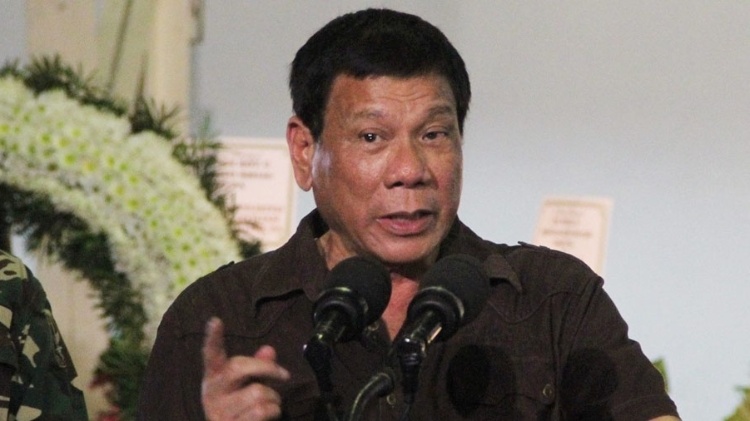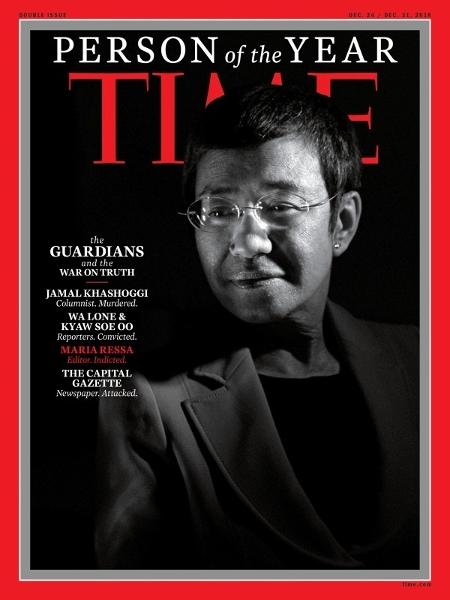In Brazil, democracy is at stake in the 2022 elections. The warning comes from Maria Ressa, winner of the 2021 Nobel Peace Prize. The Filipino journalist was selected to receive the award in a deliberate gesture by the Nobel organizers to demonstrate the press’s interest in democracy and peace. According to Oslo, he used “free speech to expose the abuse of power, the use of violence and growing authoritarianism in his home country of the Philippines”.
In 2012 he founded and still runs the digital media company Rappler for investigative journalism. “As a journalist and Rappler’s executive director, Ressa has shown to be a fearless defender of free speech,” said the award’s organizers.
in an exclusive interview with UOLDuring his visit to Geneva this week, the journalist drew attention to the similarities between his experiences in his country and Jair Bolsonaro’s relationship with the press. During her visit, Ressa even commented on the proximity of the Brazilian and Philippine cases during a meeting with the UN High Commissioner for Human Rights Michelle Bachelet.
When asked by the columnist what was at stake in Brazil in 2022, Maria Ressa was clear: “democracy”. “If Bolsonaro is the kind of leader we have, it’s a gradual erosion,” he said, acknowledging that he doesn’t have all the details of how the Brazilian president works.
“Death by 10,000 blows, and gradually we see these authoritarian-style populist leaders elected. When they come to power, they erode the institutions of democracy from within. It’s not the first time we’ve seen this. Hitler was elected. This has happened before,” he warned.
With more than 30 elections worldwide this year, the journalist believes society is experiencing an “existential moment” in 2022. “We have to make a choice. We’re going this way or that way,” he warned.
For the Brazilian election, Maria Ressa argues, the backlash didn’t come from just one group of journalists or segments of the population. “It should be the job of the whole community, as we tried to do in the Philippines. Mobilize not only newspapers to work together but also civil society groups to stop the tide of lies.”
“Bring in lawyers and legal professionals along with academic research to show how it’s manipulated,” he said. In his assessment, what happened in the Philippines, Jair Bolsonaro in Brazil or Donald Trump in the US are “parts of the same wave”.
Maria Ressa highlights how, in her country, Ferdinand “Bongbong” Marcos Jr., son of dictator Ferdinand Marcos, who ruled the country for 20 years, could be elected in a matter of days. In addition to the discovery of billions of dollars in offshore accounts, there have been decades of serious human rights abuses and crackdowns. After a popular uprising in 1986, his family went into exile in Hawaii.
Now the son is back and according to opinion polls he could get 56% of the vote. The vice presidential candidate is Sara Duterte, daughter of current President Rodrigo Duterte, who has been accused of widespread human rights abuses.
However, according to the journalist, this scenario does not happen overnight. “Since 2014, there has been an information operation on social networks that has changed our history. Marcos Jr. does not give journalists the right to ask questions. He laughs at the difficult questions the BBC asks and gives access here to his bloggers and propagandists. On social networks, people cannot distinguish between advertising and news,” he said. explained.
There is no democracy without the press.
Maria Ressa also highlights the parallels between violence against journalists in Brazil and the Philippines. “When a journalist is attacked, there is no defense against him. And we are attacked so that our credibility is affected. First, they remove credibility and replace it with a dictatorial narrative,” he said.
According to him, the task of the press is to oppose the government. “The fourth power has this check and balance function. If journalists cannot fulfill their functions, there will be no democracy,” he said. “Absolute power corrupts, and that’s part of our job,” he said.
Maria Ressa criticizes those who describe journalists as “content creators”. “The greatest quality of a journalist is the quality of asking Power questions that bother them. That requires coming from a special group of people we call journalists,” he explained.
“There is no truth without facts. There is no democracy without truth,” he insisted.
According to him, today there is an alliance between tech owners and authoritarian leaders. “If we don’t have integrity of information, we don’t have integrity of choice.
life imprisonment
Maria Ressa needed permission from seven different courts in her country to travel to Geneva. He is the target of lawsuits filed by the government there, and while these lawsuits are pending, he can only leave the country with jurisdiction. “Something unforeseen. Last week they didn’t let me go to the US. But this week I was allowed to come to Switzerland,” she said.
Ressa does not hesitate to reveal that on the eve of the elections in her country, her life will change forever depending on who wins. “The result could mean whether I’ll be arrested for the rest of my life,” he said. In seven cases, the demand for punishment exceeds more than a hundred years in prison.
It’s done now. We must act. There is no room for impartiality. We can create the world we want. But we have to act,” he said.
source: Noticias

